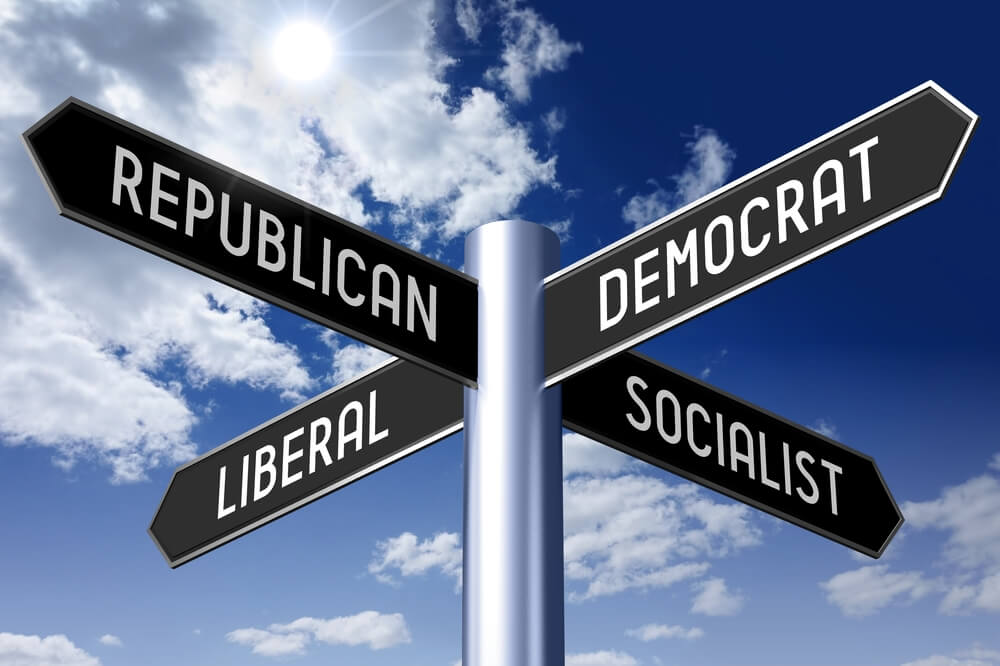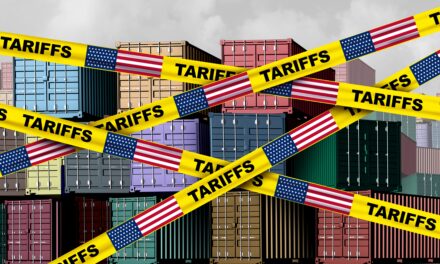President Donald Trump is for cutting taxes and coal-fired power plants that help create more jobs for Americans. Alexandria Ocasio-Cortez is a Democratic Socialist who wants the rich to pay more in taxes — a lot more — and she has a plan for a Green New Deal to combat climate change allegedly caused in part by said coal-fired power plants.
They are not at all alike politically.
Until you get to trade, Bloomberg notes in a recent article.
The president berates businesses and is trying to carve out a bigger government role in trade with tariffs, and critics of statism question his approach to China. Analysts see an uncomfortable truth regarding the president’s stance on trade, where he “behaves more like a state-interventionist than a laissez-faire guy.”
This is an area he actually has something in common with the headline-grabbing freshman firebrand from New York. Democrats are in favor of stronger trade rules to protect U.S. jobs, and this is an area where Trump is more like Ocasio-Cortez than members of his own Republican party.
Of course, Bloomberg notes, nobody will argue that Trump’s trade policy equates to the literal definition of socialism, “with its all-encompassing embrace of state planning.”
But it does sound a bit like “socialism lite,” Bloomberg says, demanding a larger role for the state in managing trade flows and intervening in corporate decisions.
Per Bloomberg:
‘Type of Socialism’
“It’s undoubtable that U.S. trade policy in the last two years has moved toward that type of socialism,’’ says Scott Lincicome, a scholar at the libertarian Cato Institute and one of the most voluble critics of Trump’s trade policy on social media.
In his State of the Union address last week Trump declared that “America was founded on liberty and independence, and not government coercion, domination, and control.”
That glossed over the coercion deployed by the president himself, and his trade hawks, in the name of fixing what they see as a broken international order.
Trump has harangued companies in a way few American presidents have matched, telling them to invest more in the U.S. and keep plants open instead of offshoring them.
He’s also reached deeper inside the boardroom than recent U.S. governments have been comfortable doing. Writ large, his trade war with China is designed in part to force corporations to rethink — and preferably repatriate — supply chains that run via America’s biggest economic rival.
‘Breathtaking Hypocrisy’
Outside of protected industries like steel, big business has consistently dismissed Trump’s tariffs as an act of economic self-harm — though its wider attitude to the trade talks isn’t always so clear-cut. Much as they bristle at intervention in their own affairs, many companies happily support the use of American state power to export strict intellectual property laws, and prise markets open.
It’s not just in America where Trump is carving out a bigger role for government. He’s effectively doing the same in China — sometimes in the same breath as demanding the opposite.
In the current talks, for example, Trump is pushing for structural changes aimed at encouraging China to behave more like a market economy. But he’s also insisting on more Chinese purchases from America — everything from soybeans and natural gas to airplanes. That’s tantamount to a bigger role for the Chinese state, and the companies it owns — which are among Trump’s targets.
“The level of hypocrisy is breathtaking,’’ says Mary Lovely, an economics professor at Syracuse University. Worse, “the Chinese have no trouble with that — because they’re a socialist market economy.’’
‘We Libertarians…’
Trump’s micro-managing of trade flows extends far beyond China.
South Korea evaded his steel tariffs last year by agreeing to an elaborate system of product-specific quotas, something Trump has been pushing other allies to sign up to as well.
New auto tariffs under consideration are designed to make foreign companies invest more in U.S. factories. European and Japanese officials privately express concerns that the administration wants to force them into strict quotas, which could be more burdensome and harder to unwind than tariffs. Or that the U.S. will insist on extending rules, like those included in the renegotiated Nafta, that mandate more production in North America and set specific wage requirements.
“We libertarians think everything’s socialist,’’ Lincicome says. But Trump’s accumulating record on trade amounts to “extensive economic planning,’’ he says. “It’s not what companies would do in an open-market situation.’’
‘Fight of Our Lifetime’
Even defenders of Trump’s broader strategy for the economy struggle with his approach to trade.
Stephen Moore, a campaign adviser to the president and co-author of the book “Trumponomics,’’ says he’s repeatedly quarreled with Trump over steel and aluminum tariffs. “It’s just not good economic policy,’’ says Moore, though he’d prefer to label the president’s approach to trade as mercantilism rather than socialism.
Either way, he’s willing to throw out the free-market playbook when it comes to dealing with China. “I’m all for that,’’ he says. “This is the fight of our lifetime, and we can’t afford to lose.’’And Moore points out that, in his approach to China, Trump displays a healthy respect for some key capitalist metrics — which is why recent tremors among global investors, who fear an all-out trade war, have driven the president toward a deal.
Because Trump is like all good capitalists. “He likes a good stock market.’’
Editor’s note: Do you agree with the Bloomberg article’s take on Trump’s trade tactics? Or do you think the president is just doing whatever he has to in order to get better trade deals for the U.S. in a situation where the ends justify the means? Share your thoughts below.




